
In my work in women’s health I see a lot of conditions impacting the lady garden, endometriosis, PCOS, fibroids, cervical dysplasia, yeast infections and UTIs. But the one issue a lot of the women in my practice complain about is bitchiness. It might not be a medical diagnosis, but it impacts up to 80% of women at some point during their monthly cycle.
Women’s Emotions
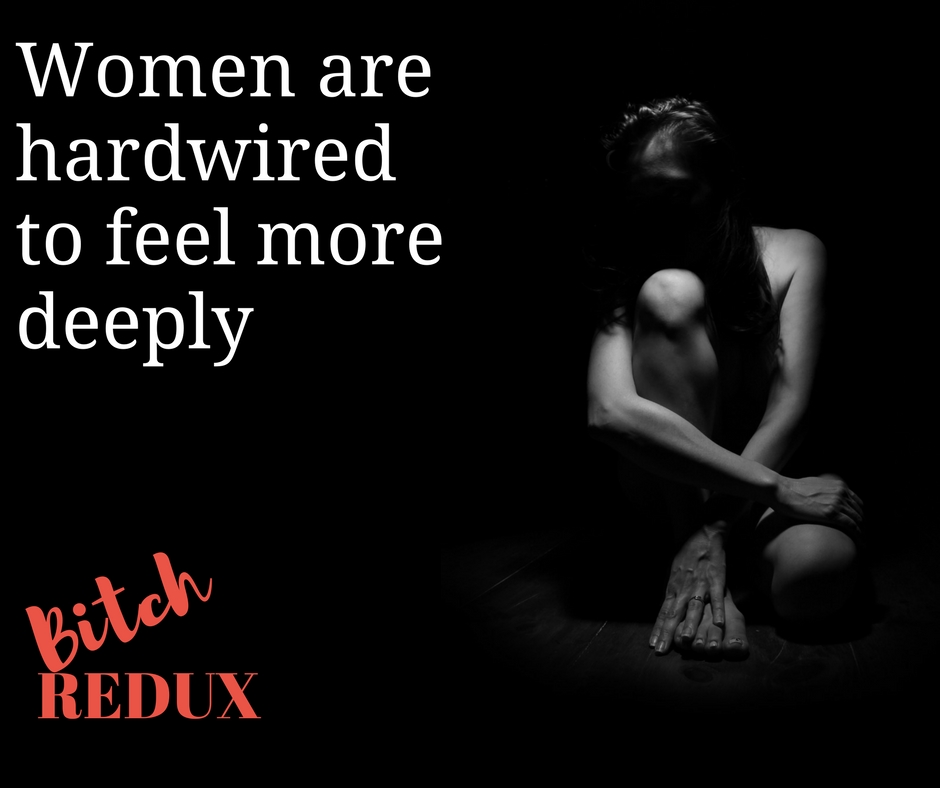 Women have evolved to have immense sensitivity, and their emotional variations allow them to be more responsive to the environment, people and connections important to them.
Women have evolved to have immense sensitivity, and their emotional variations allow them to be more responsive to the environment, people and connections important to them.
Women are naturally more empathic and intuitive than men (of course acknowledging the great diversity of individual personalities). Women have always been the caretakers, the gatherers, the life-givers. Women rely more on social relationships for their survival, and the survival of their children and communities. Women have great emotional intelligence, because they need to be able to intuit and empathize with those around them – their children’s needs, their community’s goals, their partner’s intentions.
Women’s Brains
Women’s brains develop different to men, hardwiring us to feel more deeply, be more attuned to the emotional states of others, and be more reactive to the needs of those around us. At 8 weeks gestation, the testes become functional and the resulting surge of testosterone kills neurons in the communication centre of the brain. The testosterone instead develops more neurons for action, aggression and sexual drive – ultimately taking up about 2.5 times the space in men’s brains than women’s.
In women’s brains more space is allotted for language, hearing and memory. The memory center, the hippocampus, is larger in women, allowing those early female gatherers to remember where to find the food. The insula, thought to be the seat of self awareness, empathy, and interpersonal relationships, is also noticeably larger in women. This may lead to an increased intuition, or gut feeling, in women.
Women’s Hormones
Women’s hormones DO make them more moody. For women being fixed and rigid doesn’t lend itself to survival. Our emotionality is our strength – we may not be as physically strong as men, we rely more on our emotional connections and strength of connections, community and family.
Unlike men, whose hormone production spikes at puberty and remains fairly stable across their lifetime, women’s hormones ebb and flow over a monthly cycle and wax and wane over their reproductive years.
At the beginning of our menstrual cycle, at the onset of our bleeding, estrogen levels climb to prepare an egg for ovulation at midcycle. Estrogen production is strongly linked to serotonin production – and as estrogen goes up, so too does serotonin.
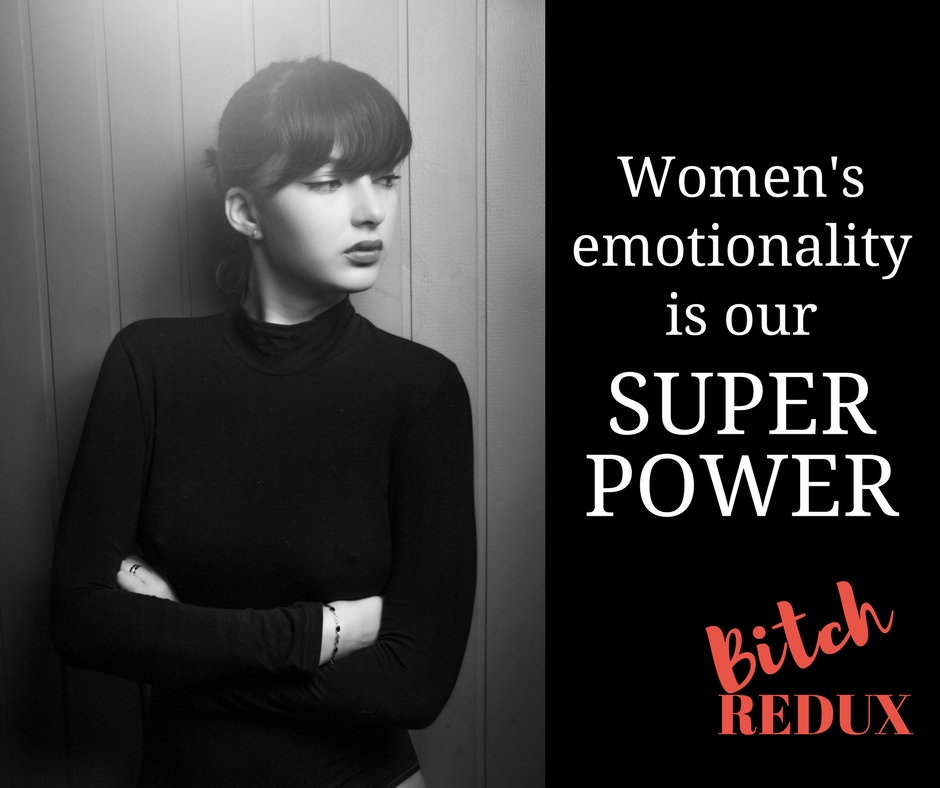 As estrogen continues to climb to the midcycle peak, most women note a positive mood state. During this time our biology encourages us to be more social, to connect to our tribe, more confident, to meet people and more alluring, to try to find a mate to conceive a baby with.
As estrogen continues to climb to the midcycle peak, most women note a positive mood state. During this time our biology encourages us to be more social, to connect to our tribe, more confident, to meet people and more alluring, to try to find a mate to conceive a baby with.
Estrogen acts as a stress hormone, or an anti-stress hormone. Making us more likely to brush off things that at other points in our cycle may provoke a significant response.
At midcycle estrogen levels are at their highest, along with dopamine and oxytocin. This encourages pro-social, trusting behaviour, and we are more generous and connected to others in our social network. We also talk more and are more interested in intimacy than at any other time of the monthly cycle.
Immediately after ovulation, our estrogen levels start to decline, but the rise in progesterone catches us before our moods crash. Progesterone doesn’t increase serotonin levels like estrogen does, but it supports GABA production, leading to a sense of calm and low anxiety that persists for about 10 days while progesterone levels are high.
All hell breaks loose during the final 3-7 days of the menstrual cycle however, with estrogen levels at a low, and progesterone levels steeply declining. Women during this time are more depressive, more cautious – a way for nature to keep us from harm during a time when we may be pregnant without knowing it.
The low estrogen also makes us less resilient, experience more physical pain, more emotionally sensitivity, and makes us more likely to react or respond to triggers that we would ignore during our high estrogen first half of the cycle. It’s not that we have more stress – we’re just way more likely to call it what it is and not stand for any shit.
Estrogen is essentially the “whatever you want honey” hormone – you are so much more willing to give to others and sacrifice your own needs when estrogen levels are high. But when those levels drop we are more likely to react and share our opinions – good or bad. It is not that we are reacting to things that aren’t really there – we’re reacting to things that upset or anger us – we just might ignore them at other times. If you feel underappreciated, overworked, or overwhelmed, or that you’re not in balance with your partner – it’s probably all true.
Bitch Redux
 I want to encourage women to recognize the power in our hormonal fluctuations – our mood changes are adaptive – they help us seek out relationships, build connections, and preserve our energy. The mood changes that occur during our premenstrual phase are normal, and temporary. I want women to reclaim our natural hormone and mood fluctations, and be empowered by our emotions, rather than struggling against them.
I want to encourage women to recognize the power in our hormonal fluctuations – our mood changes are adaptive – they help us seek out relationships, build connections, and preserve our energy. The mood changes that occur during our premenstrual phase are normal, and temporary. I want women to reclaim our natural hormone and mood fluctations, and be empowered by our emotions, rather than struggling against them.
My recommendation is to learn your natural fluctations and use your bitchiness as a superpower. Track your cycle – using any number of excellent free apps – and plan your month accordingly. Plan for presentations, meetings, anything requiring verbal skills for your first half of the cycle (the closer to ovulation the better! Your personality is magnetic when you’re near ovulation!) Have a task that requires fine motor skills – an intricate art project or rewiring your house? Keep that to the first half of the month as well.
Leave the tasks best left for your OCD-self for the last month of the cycle. I think most women probably read The Life-Changing Magic of Tidying Up during the last week of their cycle. So put “clean out the kitchen cupboards” on your list for the premenstrual week (maybe stay out of your closet though – many women feel less appealing during their premenstrual week and this could be a disastrous task.) Your pain tolerance is also lowest during your premenstrual phase – so skip the dentist or your tattoo appointment and get a mani-pedi or skin care facial instead.
Think of your PMS as a time to spend in reflection and personal contemplation. Your intuition is at its peak in the week before your period, so take time to do a mental health inventory – are you doing what you want? Are you where you want to be? Pay attention to the things you are critical about during your premenstrual phase – these thoughts are probably a lot more valid than you might want them to be. Write down the things that upset you/ anger you/ send you into a whirling passion of emotions and act on them in the beginning of the next cycle when you’re feeling energized and empowered again. Harness your bitchiness, it could end up being your greatest power.
Disclaimer
The advice provided in this article is for informational purposes only. It is meant to augment and not replace consultation with a licensed health care provider. Consultation with a Naturopathic Doctor or other primary care provider is recommended for anyone suffering from a health problem.



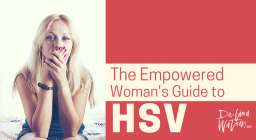





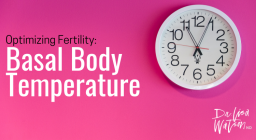


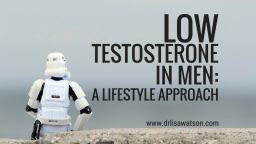


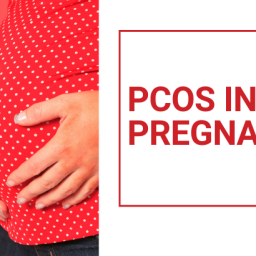
[…] has some pretty powerful impacts on our brain function – including being incredibly balancing for our moods. And as far as migraines go, estrogen has these key actions in our […]